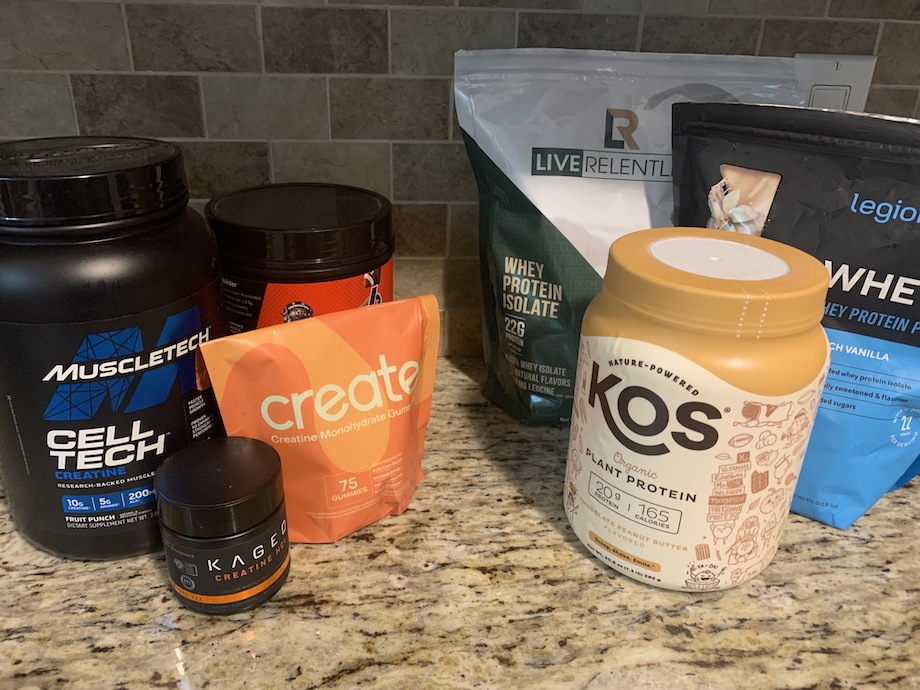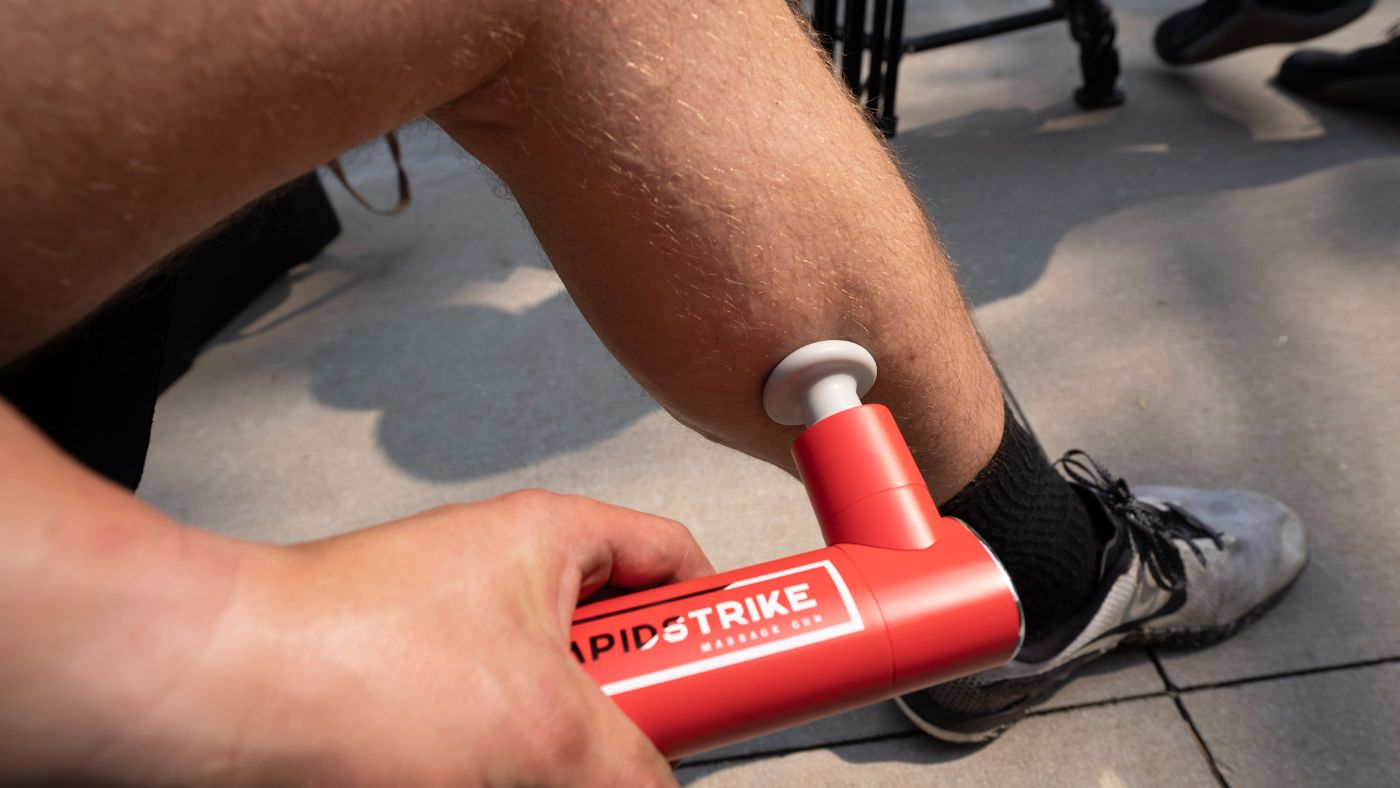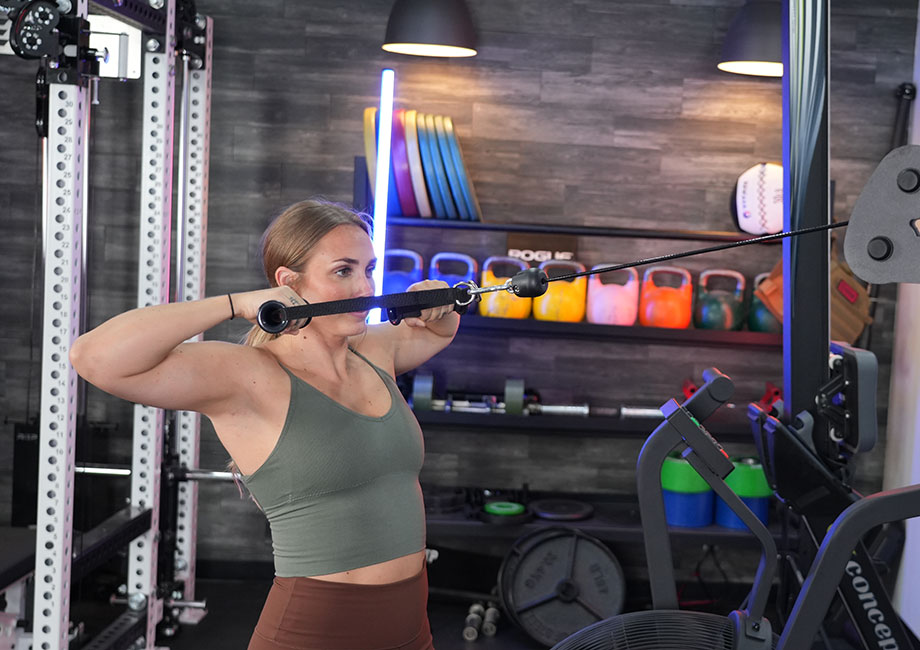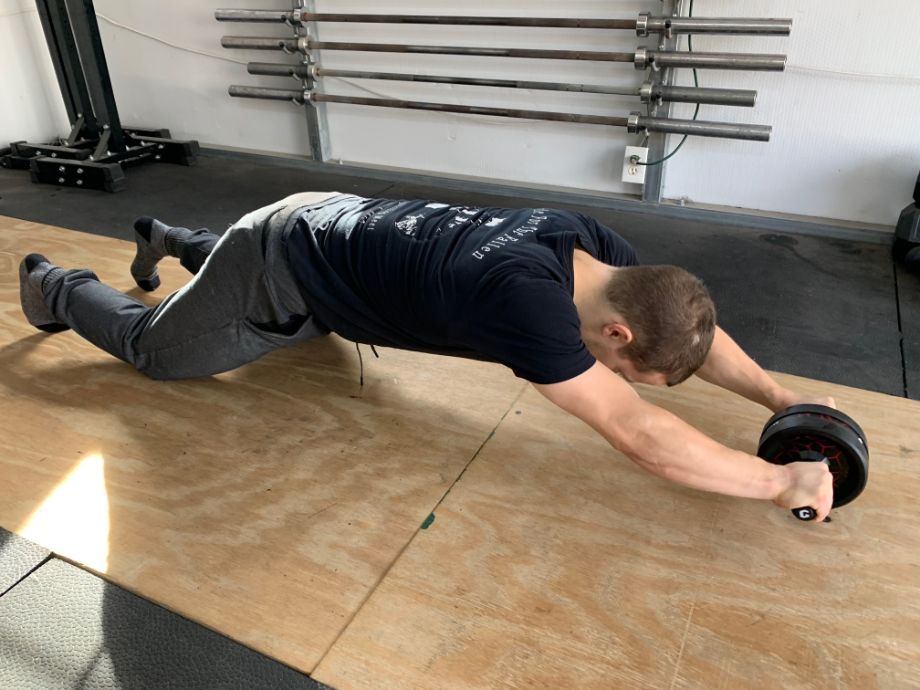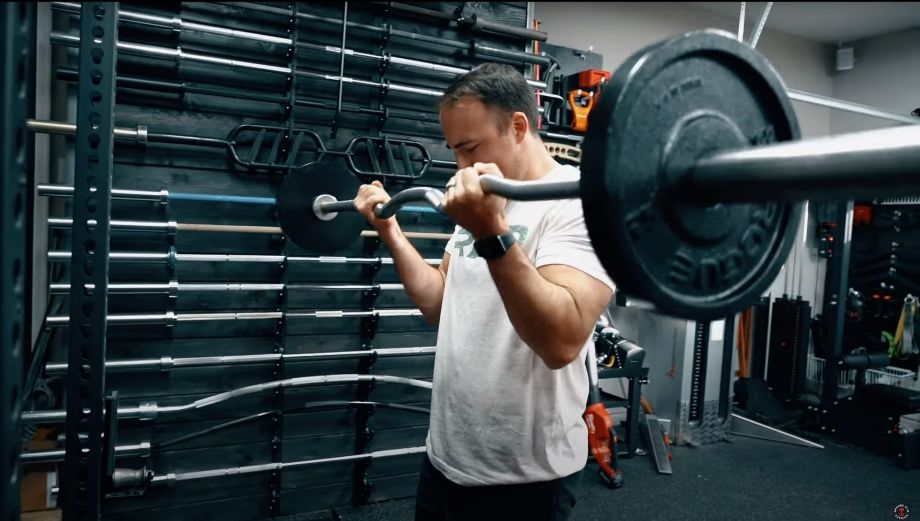If you’re new to adding supplements to your fitness routine, it can be intimidating. Knowing which products are the best supplements for muscle growth, muscle recovery, or for athletic performance will take a good amount of research…and that’s what we’re here for.
Another thing is that you may be nervous about stacking supplements together, not sure which ones you can take together or not. We wonder if mixing supplements would grant us superhuman strength, or cause the exact opposite. For example, can you mix creatine with protein powder?
RELATED: Best Supplement Stacks
Again, that’s what we’re here for. I talked with sports dietitian Meagan O’Connor, RD, about mixing these two supplements together, and this guide will take you through the ins and outs and the good and the bad (there aren’t too many) of mixing creatine with protein powder. We’ll look at the benefits of these supplements separately, as well as any benefits or side effects from mixing them together.
Medical disclaimer: This article is intended for educational and informational purposes only. It is not intended as a substitute for medical advice. For health advice, contact a licensed healthcare provider.
Mixing Creatine with Protein Powder
So can you mix creatine with protein powder? Absolutely, yes you can. While it won’t give you any added strength or energy benefits in your training by combining the two supplements together, there is the additional benefit of convenience.
“Mixing creatine with protein powder is killing two birds with one stone,” Meagan remarks. “We know they both have benefits for muscle growth, maintenance, and recovery; why not have them at the same time post-workout?”
In our guide Creatine vs Protein Powder, Sydney Lappe, RD, notes that while both supplements are great for training and exercise, protein is considered better for muscle growth, while creatine is more apt to enhance athletic performance.
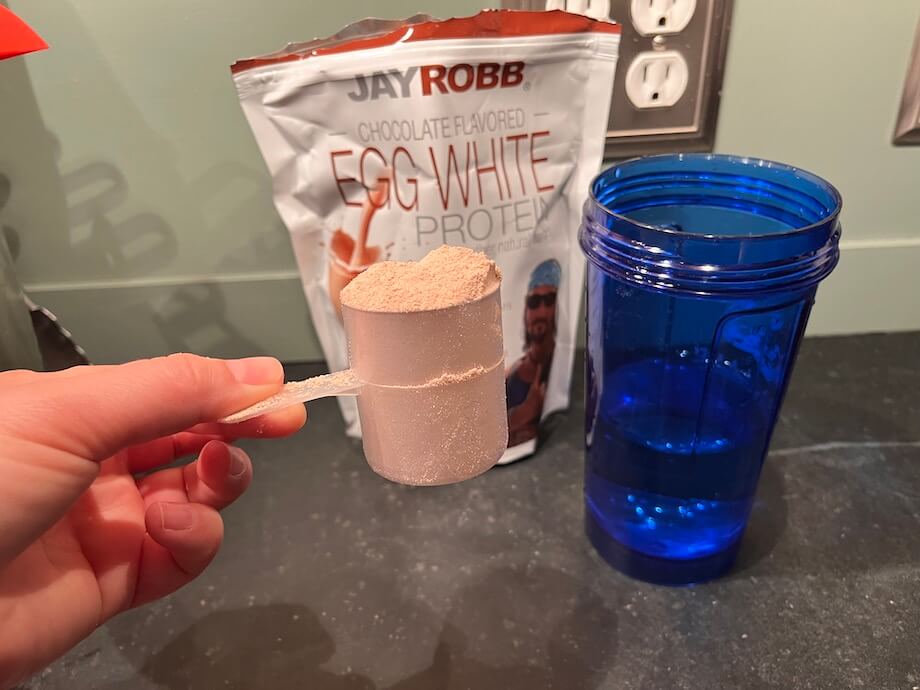
There are no serious adverse effects from mixing the two supplements together—aside from their own potential side effects. Fortunately, neither creatine or protein powder have any major side effects, so long as you keep them within recommended doses.
RELATED: Creatine Side Effects
Is there a best time of the day to mix them? Meagan says you can mix creatine with any protein at any time of day safely. However, the ideal time to have creatine with your protein shake would be after a workout. Because of this, she recommends having creatine post-workout with an isolate whey protein powder or plant protein powder, due to their faster absorption rate. This way, your skeletal muscles will replenish their ATP stores and amino acids quickly.
What is Creatine?
Although commonly known as a dietary supplement, creatine1 is actually a naturally occurring amino acid produced in the body and sourced primarily from red meat and seafood. Creatine is produced in the pancreas, kidneys, and liver from amino acids—arginine, glycine, and methionine—and then stored mostly in muscle tissue as phosphocreatine, although a small amount is also stored in brain tissue.
Creatine is responsible for replenishing stores of ATP, or adenosine triphosphate, which is used as an energy source for muscle cells to aid in dynamic movements and muscle contractions, like sprinting, jumping, and weightlifting.
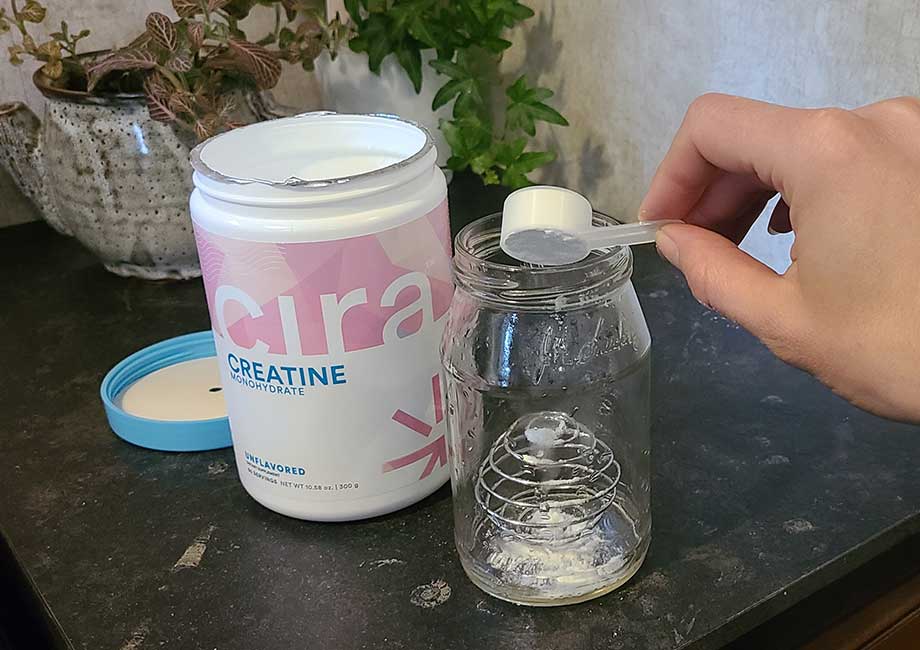
Although you can get creatine naturally through your diet, many athletes and bodybuilders take creatine as a supplement to further increase ATP stores and improve the quality of their workouts. It’s also one of the most studied and researched supplements on the market. While there are many types of creatine available as a supplement, creatine monohydrate is the most studied and shown to be the most effective type of creatine1.
What is Protein?
Protein is one of the three macronutrients2, alongside carbohydrates and fats, and the most necessary for muscle-building. This macro is made up of amino acids, known as the building blocks of protein.
There are about 20 amino acids that make up the human body, although more are found in nature. While your body produces 11 amino acids on its own, the remaining nine are known as essential amino acids and are necessary to consume in your diet, as the body can’t produce them. Quite a few of the essential amino acids are branched-chain amino acids (or BCAAs) with muscle-building properties.
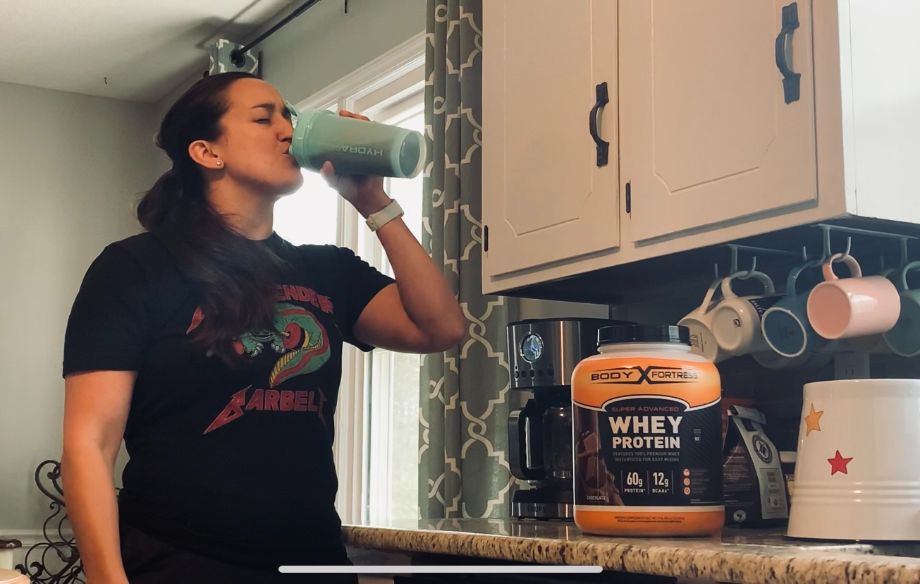
Most protein we consume is derived from high-protein foods, such as animal proteins like beef, poultry, and fish. Animal proteins are considered complete proteins, because they contain all nine essential amino acids. There are other foods that can be protein sources, such as beans, seeds, and other plant-based proteins, but not all of them are complete proteins, so make sure to include food combinations that provide all necessary amino acids.
Protein supplements are used to help meet daily protein needs. Protein powders can be made from animal proteins, such as whey protein and casein (made out of byproducts from the cheese-making process), or through plant-based proteins, such as soy, hemp, chia, and pea protein.
The Benefits of These Supplements
Are there any additional benefits to mixing creatine with protein powder? There aren’t really, as in mixing these two supplements together won’t create a “super supplement.” What it can do is be a bit more convenient by mixing two supplements into one drink, as Meagan says.
Still, both creatine and protein powder have great benefits on their own. Let’s look at those benefits now.
Benefits of Creatine
Being such a widely studied supplement, there are many documented creatine benefits.
Improve Athletic Performance
Creatine has been shown to improve performance for athletes. A 2018 study3 showed improvement in strength exercises in just four weeks. Furthermore, creatine supplementation has been shown to improve high-intensity exercise by 10 to 20%, according to the International Society of Sports Nutrition1.
Increase Strength
Looking to get muscle gains? Creatine has been shown to significantly improve muscle strength and build lean muscle mass from resistance training, according to a 12-week clinical trial4. In addition, a more recent review from 20155 showed that using creatine improved lower limb strength in exercises lasting under 3 minutes.
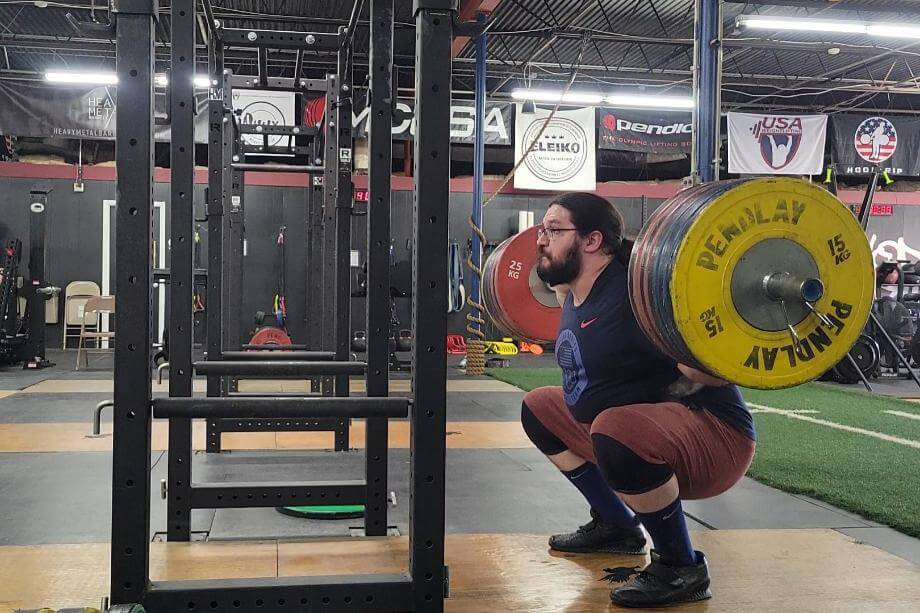
Muscle Recovery
Creatine has largely been shown to aid in muscle recovery as well. A 2021 review6 demonstrated that creatine was able to help restore lost energy potential as well as help mitigate muscle damage, which could potentially help you recover better and faster after a high-intensity workout.
RELATED: Best Muscle Recovery Supplements
Provide Neuroprotection
Creatine has been shown to offer neurological benefits as well. For example, the ISSN1 claims creatine can help reduce the severity of traumatic brain injuries or spinal cord injuries. They recommend athletes in high-contact sports to regularly supplement with creatine to reduce the severity of these types of injuries.
Benefits of Protein Powder
Protein as a macronutrient is vital to your body; however, there are many great reasons protein—and protein powder—can benefit you.
Enhance Muscle Growth
A 2019 review from Nutrients7 shows that protein can support muscle growth best when muscle protein synthesis exceeds muscle protein breakdown. In conjunction with exercise and strength training, this means your protein intake must be greater than the protein breaking down through exertion. Through training and proper nutrition, more muscle will typically lead to more strength as well.
RELATED: Best Protein Powder for Muscle Gain
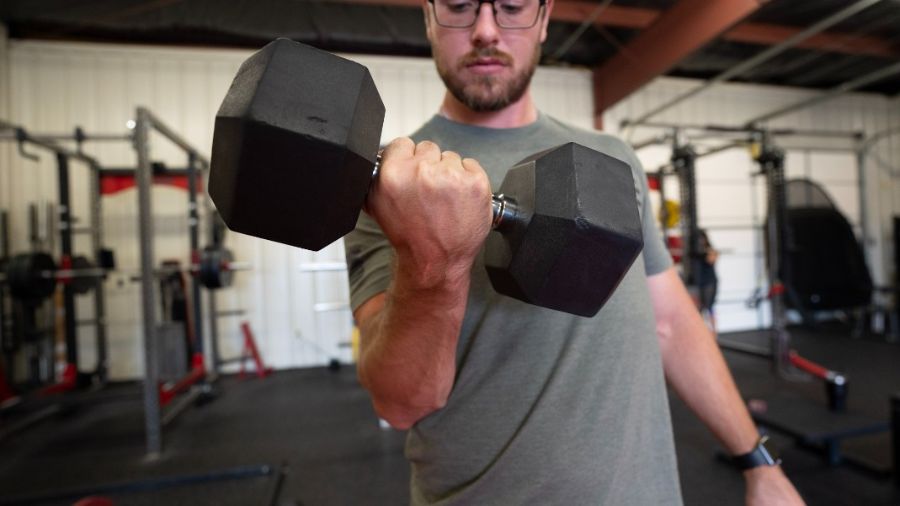
Muscle Recovery
Another valuable aspect when building muscle is proper muscle recovery and rest. A review from 20148 showed that protein taken post-workout may help reduce muscle soreness and markers for muscle damage.
Improve Body Composition
Protein can help you improve your body’s composition for the better. For one, protein has been shown9 to make you feel fuller for longer when compared to carbs and fats, due to the thermogenic properties of expending more calories to digest. This can make protein helpful if the goal is weight loss.
RELATED: Is Protein Powder Good for Weight Loss?
In addition, because protein has been shown to build and maintain lean muscle mass9, protein can help keep lean body mass while burning fat. Over time, this will help you lose fat and build or keep muscle, leading to a better body composition.
Added Convenience
Sometimes, it’s tough to meet your daily protein intake. Protein powder is great because of its convenience. Just like mixing protein powder and creatine together can save you time, throwing a protein shake together is much quicker than having to cook a cut of meat when you’re trying to walk out the door.
Are There Risks to Mixing Creatine with Protein Powder?
There aren’t many major risks that come from mixing creatine and protein together. The main thing to look out for is to know what ingredients are in your supplements. For example, some protein powders may already contain creatine. Having too much creatine in one sitting can lead to stomach issues like bloating and diarrhea, so it’s important to know how much creatine and protein you’re taking at once to mitigate the risk of adverse side effects.
The main side effect of creatine is possible weight gain. In the long-term, this can be from increasing muscle mass, but in the short-term, it’s likely due to water retention. Meagan says this initial weight gain is due to creatine drawing water into muscle cells, causing your body to retain more water, leading to added weight. Keeping your dosage to the recommended daily amount will help reduce your chances of excessive water weight.
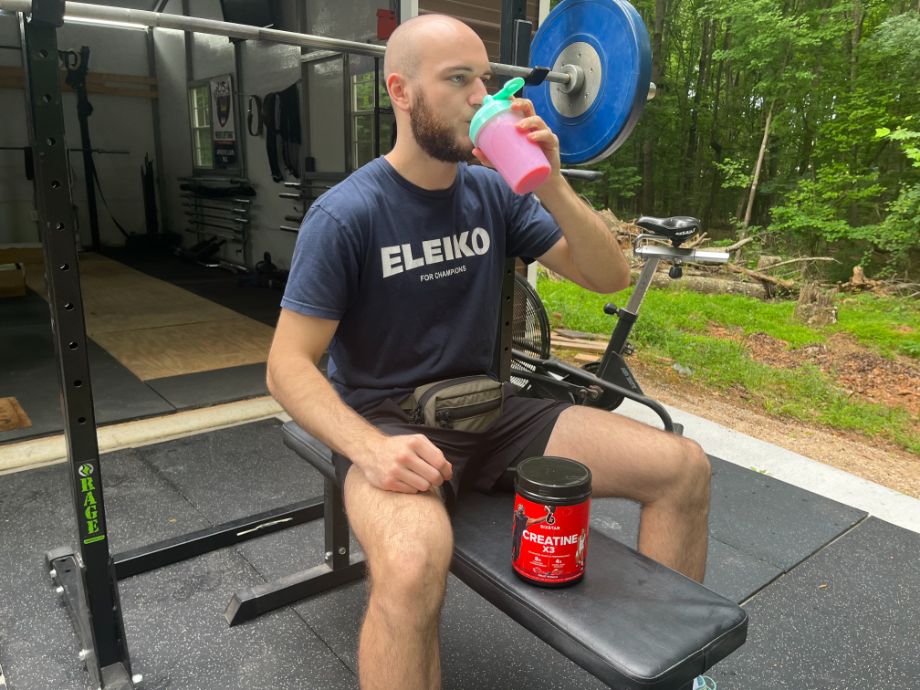
Another major side effect of creatine is a chance for stomach trouble. However, the risk for this is greatly increased when taking large amounts at once. A 2008 study10 had athletes take either 5 or 10 grams of creatine in one dose; the athletes who took 10 grams had gastrointestinal issues far more often than those taking 5 grams at a time.
Protein powder can also cause digestive problems, but it’s typically due to allergies. Those who have a dairy allergy11, or are lactose-intolerant, may feel adverse effects when taking whey or casein protein. Likewise, some plant-based proteins may cause an allergic reaction in some people. Again, be mindful of what’s in your supplements.
RELATED: Is Protein Powder Good for You?
Proper Dosages
To mitigate risks, especially when mixing supplements, it’s important to know what are proper dosages.
- Creatine: The generally agreed-upon amount for daily creatine supplementation1 is between 3 and 5 grams of creatine each day. At the start of using creatine, you can do a loading phase, which is typically 20 to 25 grams a day for 5 to 7 days, all broken up in 5-gram doses.
- Protein: The minimum recommended daily allowance for protein is 0.8 grams of protein per kilogram of bodyweight. Still, if the goal is improving exercise performance and building strength, most studies recommend a higher number. While there’s no clear consensus, the ISSN12 recommends between 1.4 and 2.0 grams of protein per kilogram of bodyweight.
Keeping your intake within these guidelines will help reduce your chances of any adverse side effects.
Can You Mix Creatine with Protein Powder? Final Thoughts
Mixing creatine with protein powder is a perfectly fine thing to do. While it won’t improve either supplement’s performance, it certainly won’t hurt you or the supplements’ effectiveness. For best results, you can combine a whey protein isolate with creatine after a workout to replenish protein and ATP stores.
Be mindful though, to keep your creatine and protein intake within the ideal dosage range for best effectiveness and to reduce risks of side effects. Be sure to check the ingredients of each supplement as well; while not common, your protein powder may already have creatine added.
Can You Mix Creatine with Protein Powder? Q&A
Does creatine affect protein powder?
No, creatine doesn’t affect protein powder when mixed together, for better or worse. Taking the two supplements together is a great way to save time. Plus, creatine powder is often unflavored, so it likely won’t even change the flavor of your protein powder.
How much protein should I take?
The minimum recommended daily allowance for protein is 0.8 grams of protein per kilogram of bodyweight. However, to have enough protein daily for muscle growth and strength, the number should be more around 1.4 to 2.0 grams of protein per kilogram of bodyweight12.
When should I take creatine and protein?
While there’s no wrong time to take creatine and protein together, an ideal time would be post-workout, when your body needs to replenish protein and amino acids.
These statements have not been evaluated by the Food and Drug Administration. This product is not intended to diagnose, treat, cure, or prevent any diseases.
References
- Kreider RB, Kalman DS, Antonio J, Ziegenfuss TN, Wildman R, Collins R, Candow DG, Kleiner SM, Almada AL, Lopez HL. International Society of Sports Nutrition position stand: safety and efficacy of creatine supplementation in exercise, sport, and medicine. J Int Soc Sports Nutr. 2017 Jun 13;14:18. doi: 10.1186/s12970-017-0173-z. PMID: 28615996; PMCID: PMC5469049.
- Venn BJ. Macronutrients and Human Health for the 21st Century. Nutrients. 2020 Aug 7;12(8):2363. doi: 10.3390/nu12082363. PMID: 32784664; PMCID: PMC7468865.
- Wang CC, Fang CC, Lee YH, Yang MT, Chan KH. Effects of 4-Week Creatine Supplementation Combined with Complex Training on Muscle Damage and Sport Performance. Nutrients. 2018 Nov 2;10(11):1640. doi: 10.3390/nu10111640. PMID: 30400221; PMCID: PMC6265971.
- Willoughby DS, Rosene J. Effects of oral creatine and resistance training on myosin heavy chain expression. Med Sci Sports Exerc. 2001 Oct;33(10):1674-81. doi: 10.1097/00005768-200110000-00010. PMID: 11581551.
- Lanhers, C., Pereira, B., Naughton, G. et al. Creatine Supplementation and Lower Limb Strength Performance: A Systematic Review and Meta-Analyses. Sports Med 45, 1285–1294 (2015). https://doi.org/10.1007/s40279-015-0337-4
- Wax B, Kerksick CM, Jagim AR, Mayo JJ, Lyons BC, Kreider RB. Creatine for Exercise and Sports Performance, with Recovery Considerations for Healthy Populations. Nutrients. 2021 Jun 2;13(6):1915. doi: 10.3390/nu13061915. PMID: 34199588; PMCID: PMC8228369.
- Carbone JW, Pasiakos SM. Dietary Protein and Muscle Mass: Translating Science to Application and Health Benefit. Nutrients. 2019 May 22;11(5):1136. doi: 10.3390/nu11051136. PMID: 31121843; PMCID: PMC6566799.
- Pasiakos SM, Lieberman HR, McLellan TM. Effects of protein supplements on muscle damage, soreness and recovery of muscle function and physical performance: a systematic review. Sports Med. 2014 May;44(5):655-70. doi: 10.1007/s40279-013-0137-7. PMID: 24435468.
- Paddon-Jones D, Westman E, Mattes RD, Wolfe RR, Astrup A, Westerterp-Plantenga M. Protein, weight management, and satiety. Am J Clin Nutr. 2008 May;87(5):1558S-1561S. doi: 10.1093/ajcn/87.5.1558S. PMID: 18469287.
- Ostojic SM, Ahmetovic Z. Gastrointestinal distress after creatine supplementation in athletes: are side effects dose dependent? Res Sports Med. 2008;16(1):15-22. doi: 10.1080/15438620701693280. PMID: 18373286.
- Fadam B, Ambadkar R, Rathod K, et al. Health benefits of whey – a brief review. Int J Livest Res. 2018;8(5):31-49. doi: 10.5455/ijlr.20170411022323
- Jäger R, Kerksick CM, Campbell BI, Cribb PJ, Wells SD, Skwiat TM, Purpura M, Ziegenfuss TN, Ferrando AA, Arent SM, Smith-Ryan AE, Stout JR, Arciero PJ, Ormsbee MJ, Taylor LW, Wilborn CD, Kalman DS, Kreider RB, Willoughby DS, Hoffman JR, Krzykowski JL, Antonio J. International Society of Sports Nutrition Position Stand: protein and exercise. J Int Soc Sports Nutr. 2017 Jun 20;14:20. doi: 10.1186/s12970-017-0177-8. PMID: 28642676; PMCID: PMC5477153.


